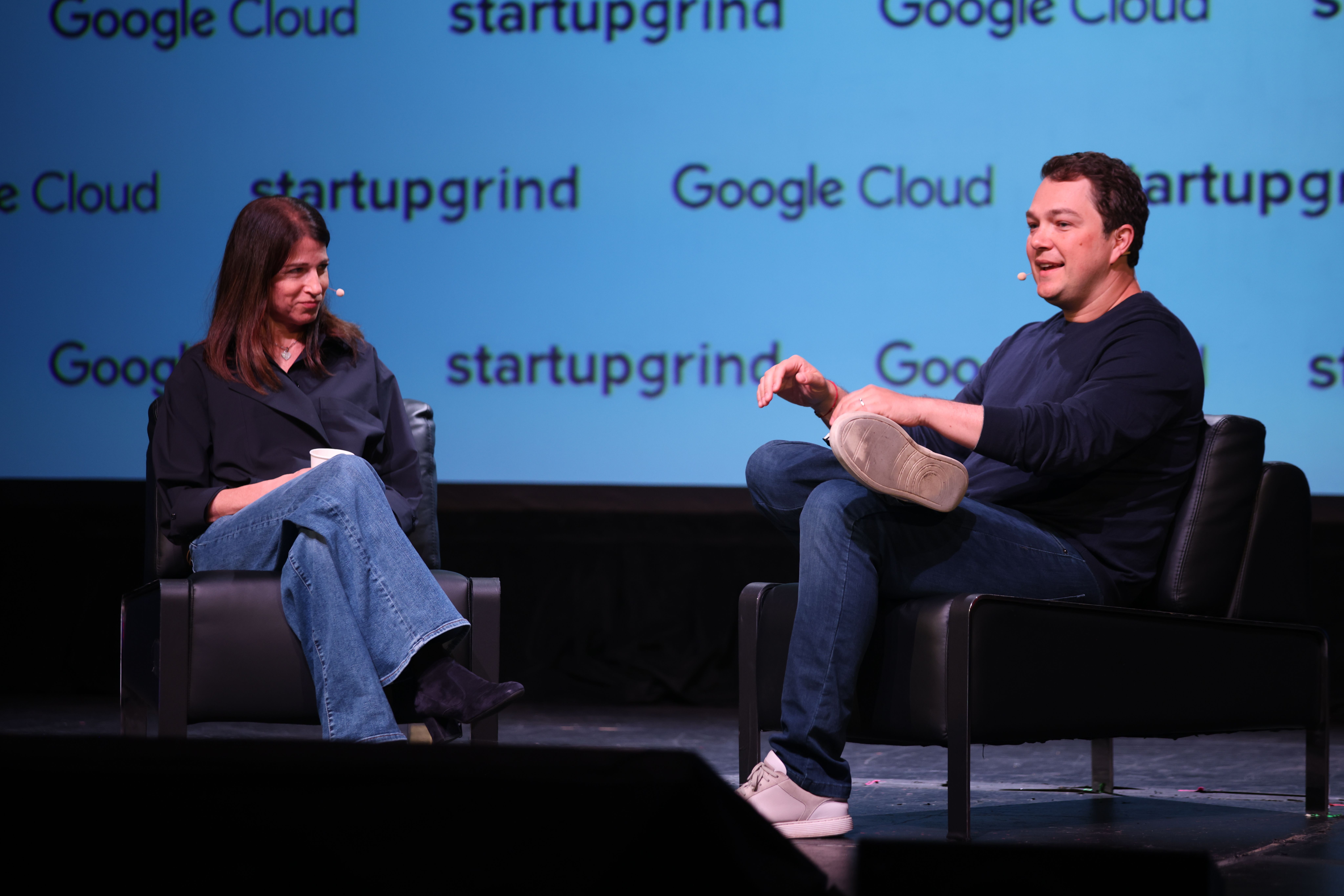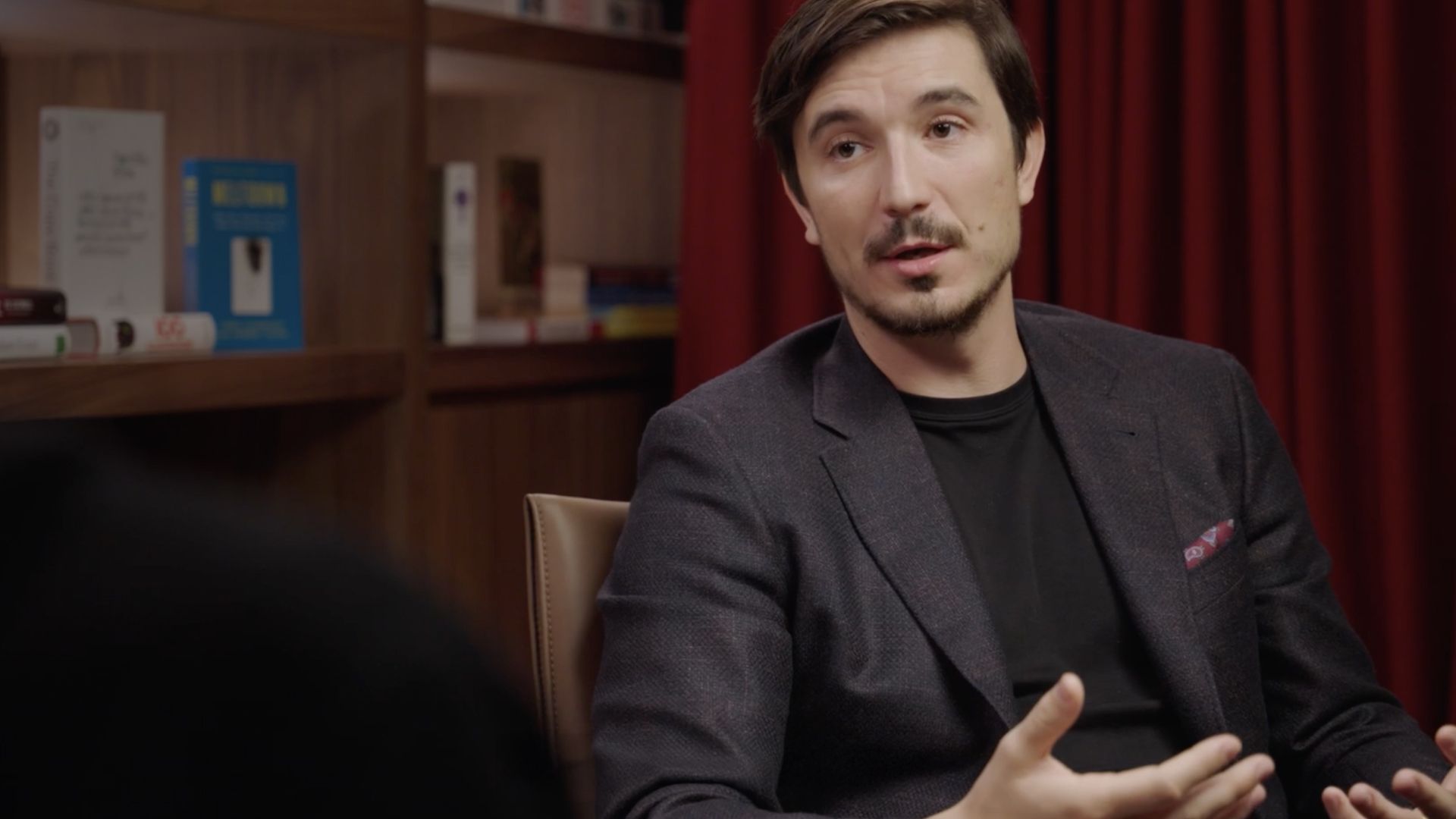Index OnAir: Crisis Comms in Trying Times

Pitching communications at just the right tone is hard enough in normal times, but the pandemic has tested leaders of every stripe. Our VP of Comms and Marketing Ana Andreescu hosts former Google VP of Comms Mike Nelson along with Miguel Head, former Chief of Staff for The Royal British Household and current Director at Milltown Partners, to talk about best practices for comms in tough times.
Ana Andreescu: What should companies prioritize during a crisis?
Mike Nelson: I joined Google in 2006, and the company was much bigger when I left last January. Yet the same baseline applied: facts, speed, and consistency matter — and more than anything, tone matters. I was recruited by David Krane, who now runs Google Ventures, and he said that Google’s voice needs to be humble and be human. That’s hard when we use so much techno-latin on a daily basis. But this is a good time for companies to develop their human voice.
Miguel Head: Big companies will always be scrutinized, and that’s particularly true coming out of this crisis because so many businesses have taken large sums of taxpayer money. But because the crisis has happened to everybody at the same time, companies can look at each other and share best practices. I’ve been struck by how many CEOs have asked for help on social media, asking for problems that certainly aren’t unique to them. They’ve engaged in a very empathetic way with their staff, suppliers, and the public.
...Because the crisis has happened to everybody at the same time, companies can look at each other and share best practice. I’ve been struck by how many CEOs have asked for help on social media, asking for problems that certainly aren’t unique to them. They’ve engaged in a very empathetic way with their staff, suppliers and the public.Miguel Head,
Director at Milltown Partners
Ana: Who’s handling the current crisis particularly well?
Mike: The valley has a phrase about being ‘inside the tornado,’ when companies cross the chasm and become super popular. I’ve never seen a company hit the chasm like Zoom. They’ve had to deal with zoombombing, iOS app sharing, encryption, they misrepresented participants versus users — but they stayed with it. Eric Yuan, the CEO, came up with a 90-day plan, bought an encryption company, and had a very deliberate cadence of communication. He hasn’t tried to duck anything. He made it personal.
Miguel: We’ve seen some interesting coverage of female leaders in New Zealand, Denmark, Sweden, and Iceland. They are being celebrated for being straightforward and compassionate when delivering a difficult message. When we’re advising leaders about getting through a crisis we often say they don’t have to have all the answers and play the strong man.
The JetBlue CEO has been emailing customers regularly. He acknowledged that people are scared, but also used the email to extend free return flights to healthcare heroes. Falling back on community values at a time like this is great marketing but it’s also really courageous. It will probably help them in the long term, and it’s so much better than squabbling over taxpayer money like some of the other airlines.
I watched the Queen deliver her message on April 5th. It was only the fourth time in 67 years that the Queen had made an unscheduled broadcast to the nation. She went back to the core principles that define the royal family: duty, service, and looking out for one another. She delivered that so beautifully, and it has been one of the best examples of leadership there has been in this crisis.
Ana: You’ve both worked with a lot of very influential leaders and politicians. What universal best practices would you recommend?
Mike: Remember that the media is a business, and it’s important to invest in those relationships. I’m still friends with people who covered Google and at the time were pretty difficult, but I respected their opinions and argued zealously. It’s good business practice to get to know reporters personally and understand their point of view. It’s right to own your mistakes, but if you haven't made a mistake it is fair to push back hard. I love a good argument, and some of the best I had at Google were internal!
Stand by your products. About a decade ago, Google went through a period of intense scrutiny and doubt. Around that time, we launched a new product in a crowded market that no-one thought there was any need for — that was Chrome. Then we launched another me-too product that nobody saw the need for — that was Android. And we had spent $1 billion on a product that had been weighed down with copyright infringement problems and was under a lot of pressure — that was YouTube. Those products were all scrutinized intensely at the time, but are now three of the biggest products at Google.
Miguel: I worked for an organization that had the unique privilege of being able to think in terms of centuries in how it operates. I worked for the young princes when they were in their early twenties, so we were thinking about how they could communicate in an authentic way. If you’re going to be in public life for so long you can’t pretend to be someone else. So we designed a program and interests around what best fitted their characters, and behind that is, again, consistency. The Queen's great mantra is to see and be seen. That’s how she has operated for 67 years. She has been a role model for the younger generation to follow, particularly Prince William. This applies as much to corporate life as it does to royal life— you fall back on what you believe in.
Consistency is essential. Knowing what you're about as an organization. Since the sixties, polling has consistently put public support for the royal family at the mid-70%, with only 13-18% universally opposed. That’s remarkable when you think about the social changes over that time, and how many generations of radical young people have come through. They have stuck to their core values and not tried to extend beyond that.
We used to spend a lot of time thinking about how to make them accessible in a way that wasn’t cheesy or too much like celebrities. They spend a lot of time with the public and the royal family has always been true to that. They are also doing much more on social media today. That is comms — meeting people where they are. Harry got himself into several scrapes but always said ‘I need to apologize straight away’. It was our job to find the right channels on his behalf. If you’re in this for the long game you don’t blame other people for what you’re going through. You take responsibility for yourself. People give you the benefit of the doubt if you are honest.
Ana: What have you learned about communicating layoffs and furloughs of staff?
Miguel: The first thing is to acknowledge that layoffs might happen. Empathy and compassion are essential. Extend that to the people who aren’t paid off, but who are scared it will happen to them and are upset for their former colleagues. CEOs can get the message right by falling back on their authenticity, by explaining how this process is causing them pain and is such an expected decision to have to make. They can also inject hope into the future, and point to the confidence that we will come out of this.
Mike: Before the last downturn I worked at a startup. I remember talking to a reporter with one finger in my ear trying to tell them the company was going to be OK while there were people crying outside my cubicle. That was when I decided to leave. My dad used to say that business is always personal. Tone matters, and sometimes that just means listening. Make yourself available, listen to how people feel, and acknowledge it. It’s probably the toughest thing you have to do.
Tone matters, and sometimes that just means listening. Make yourself available, listen to how people feel and acknowledge it. It’s probably the toughest thing you have to do.Mike Nelson,
Former Google VP of Comms
Ana: What about announcing positive news in this climate? Do the same principles apply?
Miguel: On social media, Microsoft CEO Satya Nadella has started to talk about more 'business as usual' activities — awards, new appointments, new products. Others will do the same. We can’t remain in fight or flight forever. We will see a more regular cadence of communication. It’s a difficult pivot, and we also need to remember that things could go backward again.
Mike: The narrative is certainly shifting. Companies having good news is fine. You are in the business to be in business. It’s not a moment to brag, so just be humble and matter of fact. If you’re seeing success, say so.
Ana: How do you think different social media platforms can best be deployed?
Miguel: Early on, during a crisis, a lot of CEOs were using long-form videos and blog posts to communicate, which gave space to demonstrate empathy and vulnerability. Now CEOs are reverting to short tweets and short text pieces. The CEO of Marriott is a really humble guy, and at the start of the pandemic, he did a wonderful video where he just told customers and staff that he knew they were scared and that he was scared too. The CEO of Walmart has an enormous following on Facebook because that's where the majority of his audience is. CEOs need to know where their audience is and what platform they use.
Mike: Companies need dialogues, not monologues. My old boss Rachel Whetstone used to say that no-one cares how the sausage is made. You have to use long-form sparingly. Instead, you should engage and use dialogue, and social media is great for that two-way.
Ana: How has Covid-19 changed internal company communications?
Miguel: Internal comms has always been the poor relation to external PR. Even in vast global organizations, internal comms has often been left to HR, and that needs to change. Comms and HR people need to work more closely together and understand their business better. I’ve noticed a lot of CEOs using Facebook and LinkedIn for external comms, but what they are really saying applies internally as much as externally.
Mike: It’s important to ask for help internally as well as externally. When Google laid off 200 people in 2008, the then CFO Patrick Pichette asked everyone in the company for suggestions on cutting costs. That engendered trust and made a difficult moment a bit easier.
For almost 20 years the Google founders met everyone during TGIF. Sometimes my kids would ask why I’d get home late, and I’d explain that we were producing an internationally broadcasted variety show with demanding talent. Anyone at the company could ask any questions. There was an extraordinary level of commitment to creating that open mic, making sure there was a voice for employees and that people would listen. It became an important indicator of sentiment in the company, even at scale. And it started with consistency, a commitment to do this certain thing at a certain time.
Ana: Can you both share a ‘secret’ about your previous employer?
Mike: There are no secrets left about Google — everyone who left has written a book! But I traveled with the leaders and founders of the company and they would go out of their way to talk to employees wherever they were. Sundar Pichai does it now and it really is a commitment to an internally open culture.
Miguel: I’ve been impressed with how the royal family has handled Harry and Meghan stepping back. They’ve responded with compassion and humanity and swiftly tried to help make decisions for a couple who is clearly feeling the pressure. Despite all of this they still haven’t aired dirty linen in public. There was lots of speculation about a falling out but I happen to know that isn’t true. Even during a crisis, they have stuck to their principles, and that will serve them in the long run. The bonds of those two brothers go incredibly deep and will continue to do so for their whole lives.
This Index OnAir webinar took place on May 7, 2020. Transcripts have been edited for clarity and length.
Published — May 13, 2020


